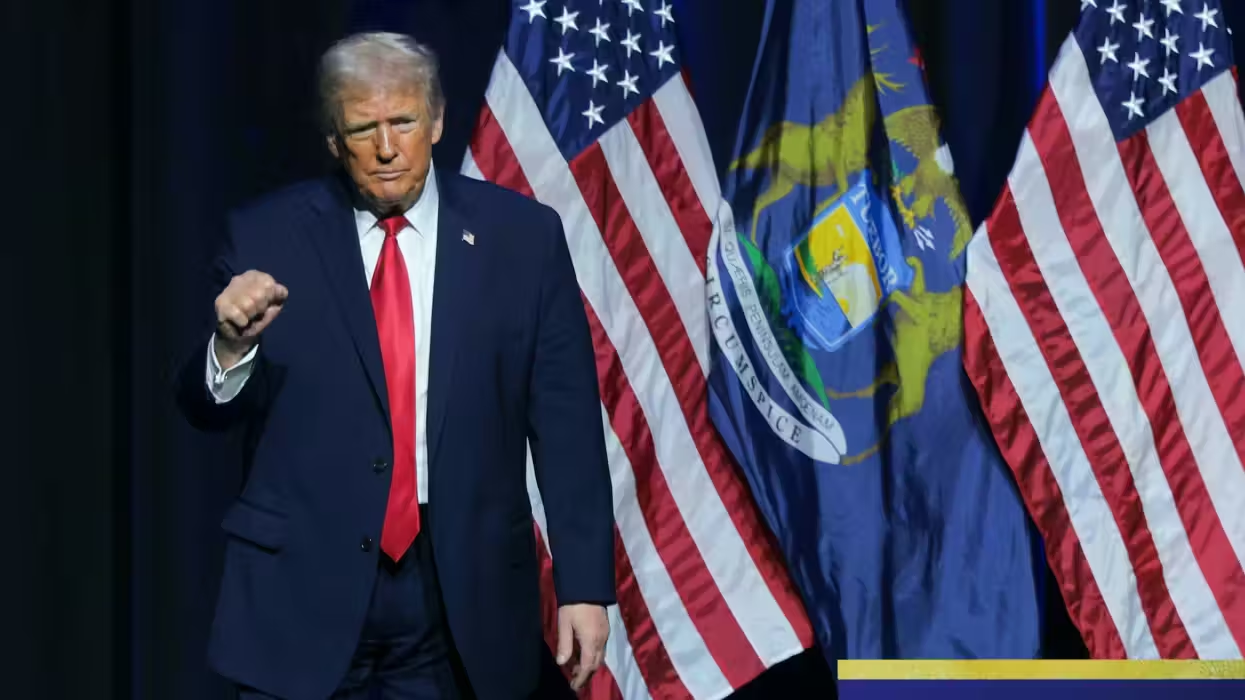
© 2026 Blaze Media LLC. All rights reserved.
“They might as well call it the Cyber Insecurity and Anti-Employment Act.”
 (Photo: Shutterstock.com)
(Photo: Shutterstock.com)
Just last week, documents released through a FIOA request revealed the Department of Justice gave tech companies immunity from breaking federal wiretapping laws in exchange for allowing law enforcement to intercept online communications. Now, it is being revealed that the feds are seeking not only to obtain information voluntarily from Internet Service Providers but want to penalize those who don't cooperate with their requests for this information.
The Washington Post reported officials familiar with the draft proposal saying fines starting at tens of thousands of dollars could be impressed upon ISPs who don't comply with wiretap orders. If fines are not paid within 90 days, the amount unpaid could double -- daily.
“Today, if you’re a tech company that’s created a new and popular way to communicate, it’s only a matter of time before the FBI shows up with a court order to read or hear some conversation,” Michael Sussmann, a former federal prosecutor and partner at Perkins Coie’s Washington office who represents technology firms, told the Washington Post. “If the data can help solve crimes, the government will be interested.”
Here's more from the Post regarding the draft proposal:
Some technology companies have developed a wiretap capability for some of their services. But a range of communications companies and services are not required to do so under what is known as CALEA, the 1994 Communications Assistance for Law Enforcement Act. Among those services are social media networks and the chat features on online gaming sites.Former officials say the challenge for investigators was exacerbated in 2010, when Google began end-to-end encryption of its e-mail and text messages after its networks were hacked. Facebook followed suit. That made it more difficult for the FBI to intercept e-mail by serving a court order on the Internet service provider, whose pipes would carry the encrypted traffic.
The proposal would make clear that CALEA extends to Internet phone calls conducted between two computer users without going through a central company server — what is sometimes called “peer-to-peer” communication. But the heart of the proposal would add a provision to the 1968 Wiretap Act that would allow a court to levy fines.
Kenneth Wainstein, assistant attorney general for national security earlier in the 2000s, told the Post that proposals like this are not to increase surveillance capabilities but “to make sure their existing authorities can be applied across the full range of communications technologies.”
But privacy advocates that have long challenged some of the government's wiretapping activities, like the Center for Democracy and Technology, are likely to balk at the draft proposal that would penalize companies in non-compliance.
“This proposal is a non-starter that would drive innovators overseas and cost American jobs,” Greg Nojeim, a senior counsel at CDT said. “They might as well call it the Cyber Insecurity and Anti-Employment Act.”
A reason why companies might not want to create a way that communications could be intercepted from their systems, former Sun Microsystems engineer Susan Landau said, is because it could make them vulnerable to hacking.
Marcus Thomas, former assistant director for a tech division of the FBI, agreed but is reported as saying that there are measures that can be implemented to make sure the system would still be secure. Although, they come at a cost though.
The Post reported that small companies would be exempt from being fined for non-compliance with wiretapping requests.
Initiatives like this to access communications and overcoming the "going dark" issue, the FBI's General Counsel Andrew Weissmann said at a meeting with the American Bar Association in March, are a "top priority" for the FBI.
“I certainly am sympathetic of people’s expectations of where, of how they keep things …it’s definitely one that’s evolving,” Weissmann said at the meeting. “I don’t know that I would go so far as to say that our view is not ‘technologically neutral,’ because I think the law right now really does differentiate whether you’re keeping something at home or whether you’re giving it to a third party. But I do think there is room for a healthy debate on that and I think the department has … shown sort of admirable movement on trying to analyze those issues.”
Read more about the draft proposal and the perspectives weighing in on it in the Washington Posts' full article here.
(H/T: SlashGear)
--
Related:
Want to leave a tip?
We answer to you. Help keep our content free of advertisers and big tech censorship by leaving a tip today.
Want to join the conversation?
Already a subscriber?
more stories
Sign up for the Blaze newsletter
By signing up, you agree to our Privacy Policy and Terms of Use, and agree to receive content that may sometimes include advertisements. You may opt out at any time.
Related Content
© 2026 Blaze Media LLC. All rights reserved.
Get the stories that matter most delivered directly to your inbox.
By signing up, you agree to our Privacy Policy and Terms of Use, and agree to receive content that may sometimes include advertisements. You may opt out at any time.






